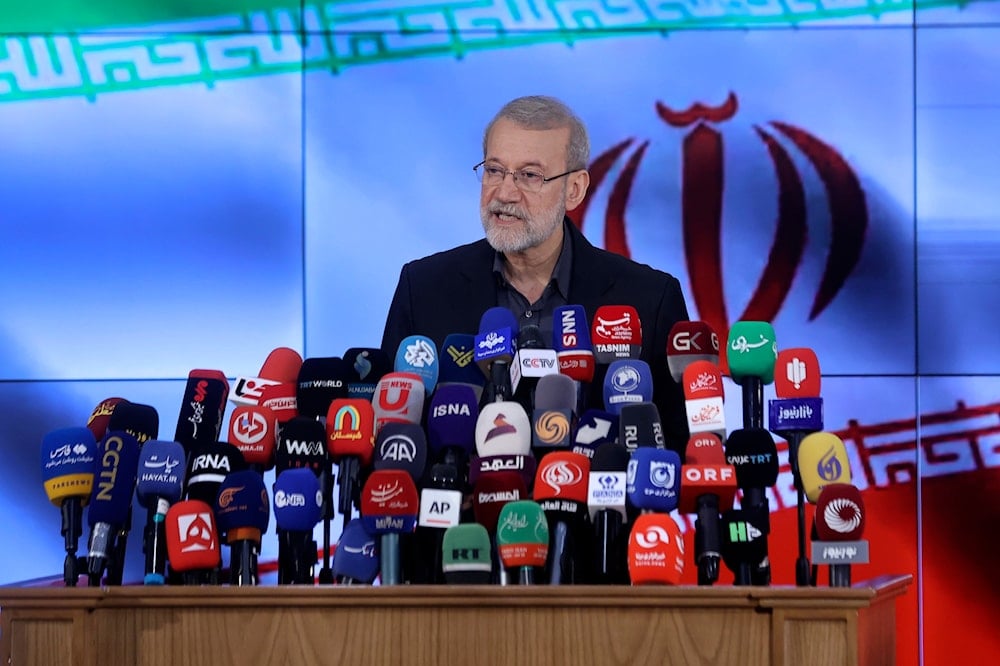Iran open to talks, rejects degrading US proposals: Larijani
Ali Larijani says Iran backs fair talks, slams US missile demand as undignified, and blames E3 for violating the nuclear deal.
-

Iran's Supreme National Security Council chief Ali Larijani speaks with the media after registering his name as a candidate for the June 28 presidential elections at the Interior Ministry in Tehran, Iran, Friday, May 31, 2024 (AP)
Ali Larijani, the Secretary of Iran's Supreme National Security Council and senior political advisor to the Leader of the Islamic Republic of Iran, Sayyed Ali Khamenei, dismissed as a "lie" the notion that his country refuses to negotiate, pointing out that Iran has held talks even while under military attack by "Israel" and the United States.
Larijani stated that Iran would accept any logical and fair proposal that safeguards its interests, revealing that two separate proposals had been put forward by the European and the Russian sides, both of which Iran accepted with some reservations, leading to the establishment of a six-month negotiation period.
However, he emphasized that the other parties, referring to the E3, failed to honor their commitments and proceeded to activate the snapback mechanism.
US proposal unacceptable to anyone 'with dignity'
Larijani also addressed the initial American proposal, explaining that it contained a condition which he stated "no person with dignity could accept," namely, reducing the range of Iranian missiles to under 500 kilometers.
The Secretary of the Supreme National Security Council accused the other parties of presenting demands that were unacceptable to Iran, being the ones who violated the nuclear agreement, and now exploiting the text of that same agreement.
He pointed out that Iran has never shied away from negotiation, while the other party pays lip service to the idea but is actually pursuing different objectives, while simultaneously affirming that his country would never compromise on its interests or national security and would continue to defend them.
Iran remained committed; other parties reneged
Larijani firmly reaffirmed Iran's commitment regarding the range of its missiles, stating that the path Iran follows stands in direct opposition to the destabilizing policies of the Israeli entity, while expressing Tehran's openness to political, commercial, and security cooperation with all countries in the region and declaring that this policy will be continued.
During a meeting with members of the Chamber of Commerce, Larijani asserted that Iran had sought to resolve the issue of the snapback mechanism's activation through negotiation, but the other parties demonstrated greed and erected obstacles.
Larijani disclosed that the reason Iran signed the agreement with the IAEA in Egypt was the critical need to put special cooperative arrangements in place after its nuclear facilities came under military attack.

 3 Min Read
3 Min Read








